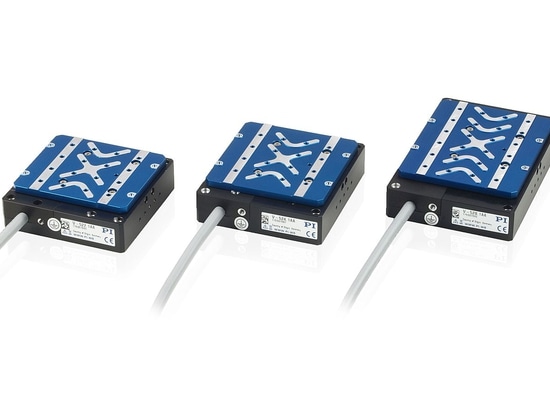
#Product Trends
When it just has to be fast: Small Ultrasonic Rotation Stages
Compact, fast rotation stage are needed in industry and research, for example, for testing material, for beam guidance in microscopes or Beamlines, as well as for positioning measuring heads or eccentric pumps.
Ultrasonic piezomotors are often the best choice of drive, because they are small, fast, and silent. In addition, they are also self-locking when de-energized, but can still hold the load that they move. Additional brakes are not necessary and no heat is generated when they are at rest.
PI (Physik Instrumente) now has three further ultrasonic rotation stages in its portfolio (image), which are suitable for very fast applications. They reach velocities up to 720 degrees per second with a very dynamic stop-start behavior. They have a very compact design and their edge lengths of 20, 30 or 50 mm with a height of only 10, 12 or 19 mm allows them to be easily integrated even where space is limited. Their drive torques are 5, 10, and 25 mNm, with a rotation range of more than 360°. Vacuum-compatible versions (to 10-6 hPa) are also available.
In the case of the ultrasonic rotation stages, a piezoceramic ring motor acts directly on the rotating platform. Because mechanical components such as gearheads are not necessary for transmitting the force, the drives are virtually wear-free and very reliable. The integrated, direct-measuring, incremental encoder enables reliable position control and repeatability. Depending on the version, the minimum incremental motion is 0.03, 0.006 or 0.003 degrees.
About PI
Well-known for the high quality of its products, PI (Physik Instrumente) is one of the leading players in the global market for precision positioning technology for many years. PI has been developing and manufacturing standard and OEM products with piezo or motor drives for 40 years. In addition to four locations in Germany, the PI Group is represented internationally by fifteen sales and service subsidiaries.




